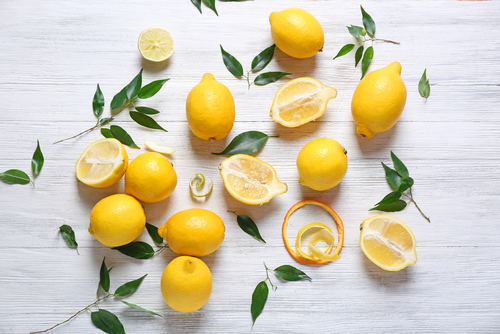
Vitamin C - The vitamin for more power!
Photo: Africa Studio, Shutterstock
VITAMIN C (ASCORBIC ACID)
This water-soluble vitamin is present in most foods, but especially in fruits and vegetables, and in small amounts in meat and fish. The vitamin is particularly important in cell protection. It helps to counteract oxidative stress, to fight free radicals, so to speak. It is also involved in numerous processes in the body, for example in the formation of connective tissue or in the protection of the immune system. It is also immensely important in the absorption of iron.
Vitamin C is also sensitive to heat and light. Food should therefore be consumed quickly and prepared gently.
Plants and animals can biochemically produce vitamin C themselves from fructose. Only humans and monkeys, guinea pigs, some birds and fish are not able to do this and have to take in the vitamin with food.
Vitamin C is highly concentrated in the lens of the eye and in the tear fluid, 50 times more than in the blood.
Excess vitamin C is excreted in the urine. Intestinal disorders can occur if more than 3 grams per day is taken. Kidney stones can also form as a result of hyperacidity.
Important for:
- the cell protection
- protection of other vitamins and proteins against free radicals
- the metabolism
- the production of hormones
- the production of nerve messengers
- the production of collagen
- fat burning
- detoxification of the liver
- the binding of heavy metals such as lead and mercury in the body
- the prevention of the transformation of nitrates into carcinogenic nitrosamines
- activation of folic acid
- the promotion of iron absorption
- the protection of the immune system
- helps with allergies because it reduces the release of histamine and regulates its breakdown
Deficiency symptoms:
- Scurvy: bleeding gums, immune deficiency, fatigue and exhaustion, poor wound healing, skin problems, muscle atrophy, bone pain, joint inflammation, high fever, severe diarrhea, dizziness.
- susceptibility to infections
- depression
- lack of concentration
- wrinkling
- senile cataract and macular damage of the eye
- cardiovascular diseases
- weak connective tissue
Contained in: almost all vegetables and fruits such as:
| FOOD | VITAMIN-C-CONTENT in mg/100g |
| Broccoli | 94 mg |
| Brussels sprouts | 85 mg |
| Green Tea | 200 - 300 mg |
| Kale | 105 mg |
| Lemon | 53 mg |
| Orange | 45 mg |
| Paprika | 127 mg |
| Rosenkohl | 85 mg |
| Potatoes | 19 mg |
| Strawberries | 57 mg |
Recommended daily dose: Vitamin C in mg /day
| Infants | 20 mg |
| Children and Teenager | 20 - 105 mg |
| Women | 95 mg |
| Men | 110 mg |
| Pregnant women | 105 mg |
| In the nursery period | 125 mg |
VITAMIN C is contained in the following products from mySUPERFOOD:
| Acai | 290 mg / 100 g |
| Camu Camu | 110 mg / 100 g |
| Lucuma | 11 mg / 100 g |
| Maca | 3,5 mg / 100 g |
| Physalis | 20 mg / 100 g |
| Yacon |
not specified |
Tags
Angebot des Monats

